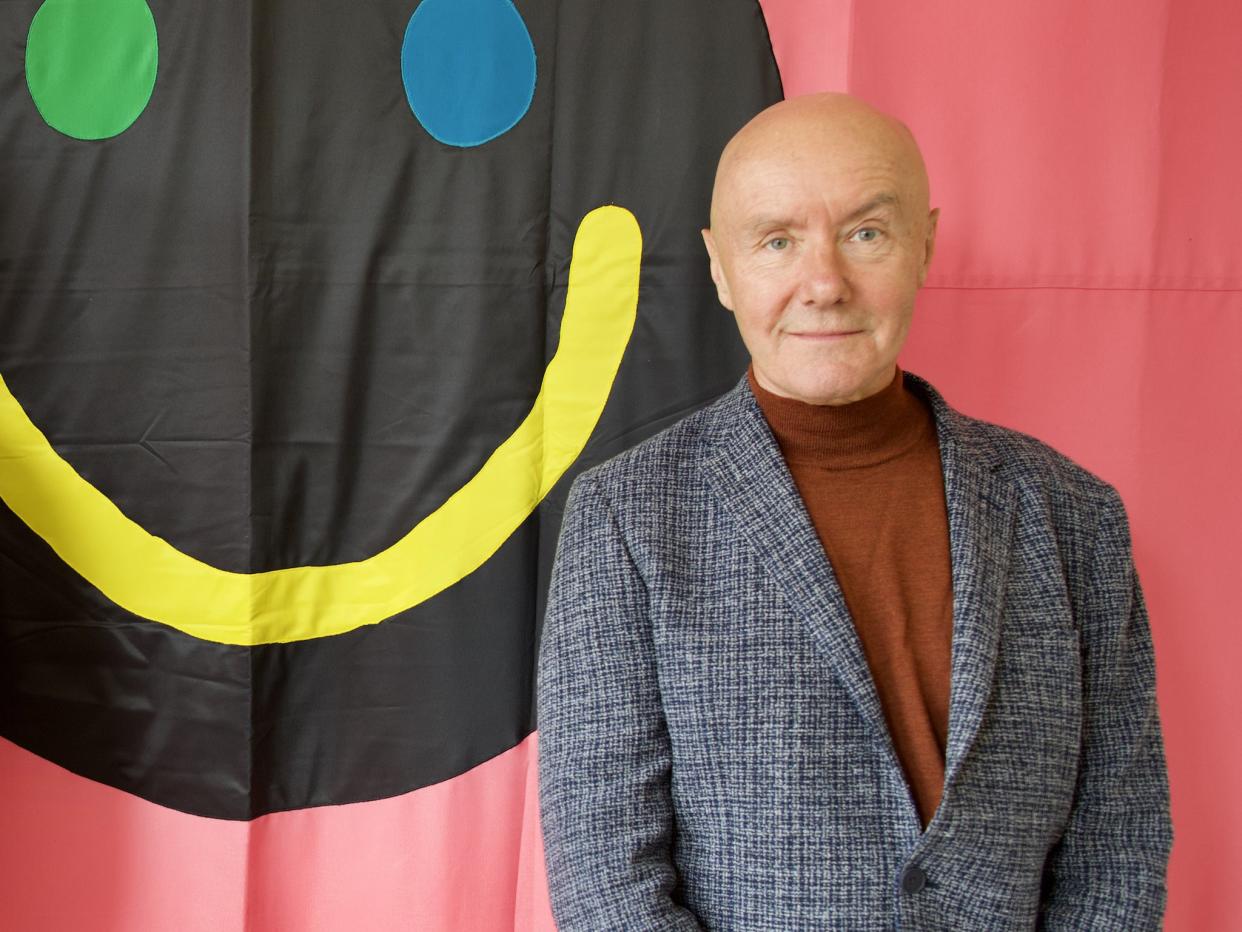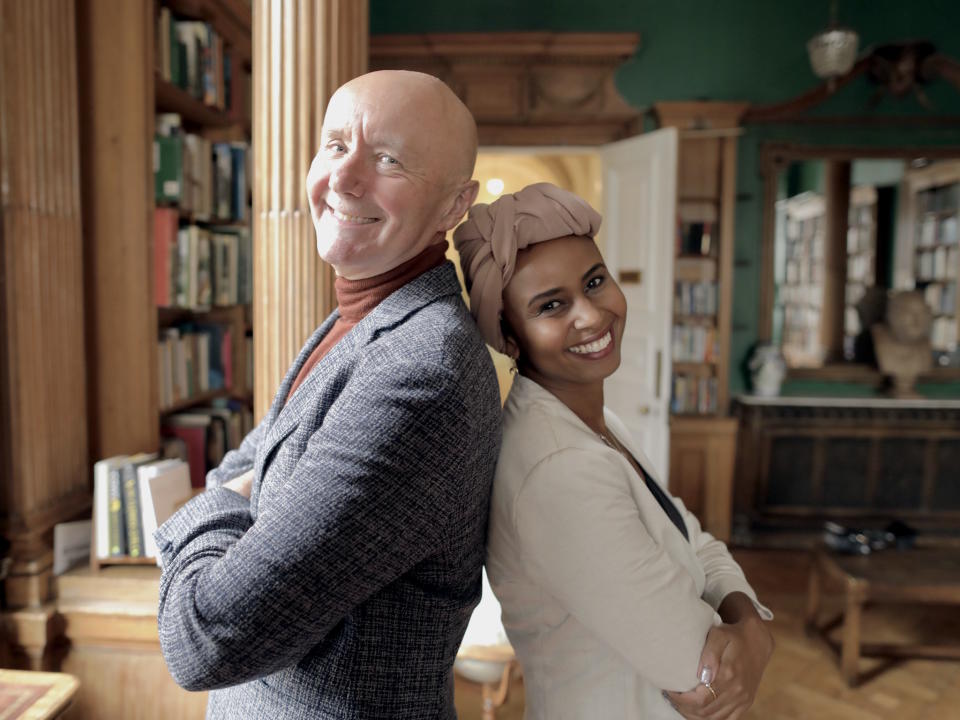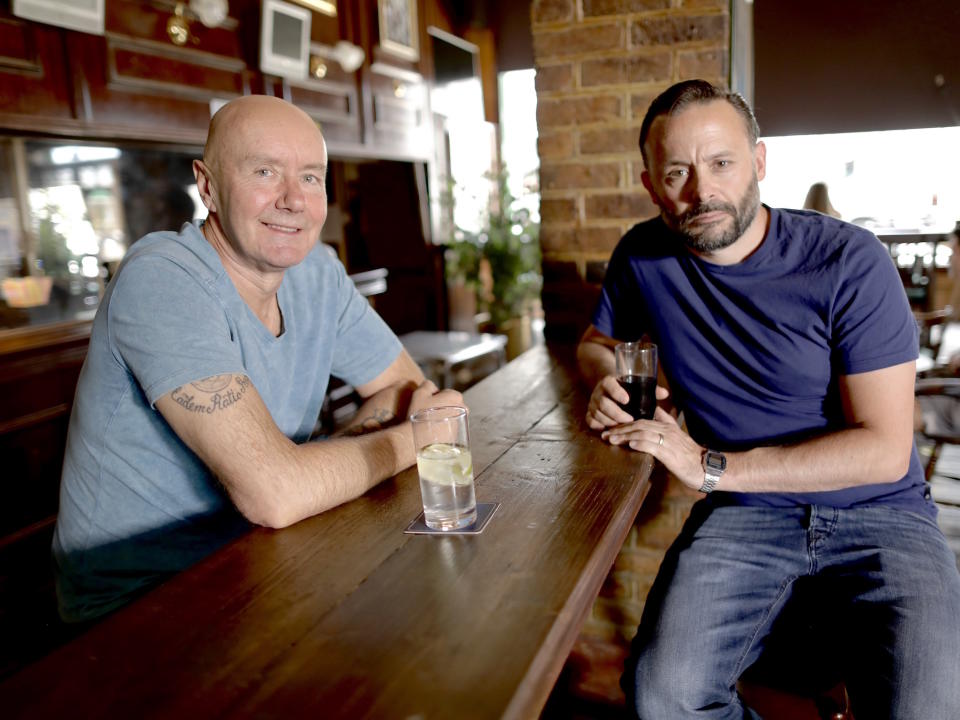Irvine Welsh: ‘The black people I see in the media all went to the same posh public colonial schools as the white kids’

On the offensive: ‘In the world of art, isn’t it a divine and sacred rule that anything should go? After all, if it provokes us into thought, isn’t that what art is for?’
(Sky Arts)I feel for youth,” says Irvine Welsh. “There’s not a lot left for them now. The economics have been f***ed for them, culture has been f***ed for them, the environment has been f***ed for them. Everything was kind of s*** when I was young, but it suddenly seems f***ing brilliant, because it has got so bad. Having said that, they’re young. They’re gonna have fun anyway.”
At 62, nearly three decades since the publication of Trainspotting, the novelist finds himself in a surprising position. He has the reputation, the houses, the blockbuster film adaptations, and by his own admission hasn’t needed the money for years. Although he is clad in a black Adidas tracksuit for our Zoom conversation across London, and his speech is as peppered with profanity as it has always been, the perennial enfant terrible is coming to terms with becoming an elder statesman. We speak as Joe Biden is on the cusp of being declared US president. Welsh, who spends part of the year at his house in Miami Beach, has had a front-seat view of Trumplandia, and as the results come in he has been entertaining his 350k Twitter followers with pithy updates on Trump’s progress.
“Now we know he’s going to lose, [the slow counting] ekes out the sweetness of it,” he says. “All he can do is make a bigger and bigger c*** of himself. Where I am tends to be the more progressive wing of Florida. But the north and the panhandle is quite right wing, and the middle part, around Orlando and Disney World and St Petersburg, is full of old people and displaced sex offenders, so they’re Republican. Only a broken system could throw up someone as completely unsuited for power as him. He’s a mess of a guy, a mess of a human being. It’s an indictment of all of us that we’re in such a state, as a species, we’re prepared to let the worst of us lead us.”
He finds American politics more entertaining than British politics, he says, because he has less at stake. “It’s horrible seeing reactionary people trading on fear and hate, particularly from people who are disadvantaged, but it’s more depressing over here because I’m more invested. Britain seems to want to become a shabby third-rate version of America, and that’s what we will become, especially with Brexit. It’s so dispiriting. We’ve ceded power to clapped-out elites. When you critique capitalism, you think it’s about money and greed but it’s about power, as you see with Covid. There’s an urge to control people and use the power of the state in any way they can. It’s hard not to think of [Covid] as an internal 9/11. What 9/11 was for foreign terrorism this is domestically, it’s an attempt to control our population. I hate talking like this because you sound like those f***ing libertarians or right-wing conspiracy theorist nut-jobs, but there is something very malevolent about the controlling apparatus of the state.”
You sense Welsh would be happy continuing in this vein all afternoon, ideally over a few pints, or something stronger, but we’re speaking because he is worried about cancel culture, about which he has made an hour-long documentary for Sky Arts. In Offended by Irvine Welsh, he investigates whether censorious mobs are having a damaging effect on the arts. Welsh has built a career on the back of saying the apparently unsayable, but it was a close-run thing. Trainspotting was considered a risk for its publishers, and it was kept off the Booker shortlist, or so Welsh has long claimed, because it pricked the sensibilities of two “middle-class female judges”. Although his work delights in provocation, and Welsh seems to relish its bad reviews as much as its raves, he is sure his debut, and subsequent novels like The Acid House and Filth, would not be published today.

Novelist Nadifa Mohamed appears in Welsh’s documentary
Sky Arts“Are artists and writers running scared?” he asks at the top of the programme. We have all become too thin-skinned, with grave risks for the culture. “In the world of art, isn’t it a divine and sacred rule that anything should go? After all, if it provokes us into thought, isn’t that what art is for?”
His interviewees all have different answers. There’s a broad spectrum, from the rapper MIA and the novelist Nadifa Mohamed to the artist Jake Chapman, whose Nazi figurines and sculptures of little girls with sex organs for heads caused a stir when they were first exhibited, to the “right-wing comedians” Geoff Norcott and Andrew Doyle, the latter of whom is behind the spoof woke Twitter character, Titania McGrath.
It’s an unusually direct documentary, which ends with Welsh reiterating his argument straight down the camera. “To speak the truth to power, people really need to be able to express themselves freely and say what they want. I want human beings to have the confidence to question and genuinely offend.”
“I wanted it to feel like an essay because I don’t have the answers,” he tells me. “But it seems like the right time to be asking the questions. In the face of all these existential threats, we’ve become very fearful, and people want to belong to these little tribes.” He thinks a growing intolerance for offence, and the cumulative effect of damaging pile-ons, risks sanitising our culture.
“Imagine you’re a record label, and there’s a bunch of working-class kids from a council estate in a band,” he says. “They’re not media savvy, they’ve got money for the first time, and they want to piss it up and have a party. Then you’ve got another band who’ve been through the universities, and they know how to talk to corporate people because their parents were corporate people. You’ll sign the second band because it’s less hassle. They won’t say anything stupid that’s going to result in a pile-on.” The traditional retort to anxieties about cancel culture is that these figures haven’t actually been “cancelled”. MIA was dropped from the Afropunk festival in 2016 after asking whether American artists would support causes other than Black Lives Matter, but she remains a superstar. Like the actor Laurence Fox, Norcott and Doyle have arguably achieved more fame from complaining that they are being silenced than they achieved beforehand. “Yes, but there’s a snowball effect,” Welsh says. “On a subliminal level people start thinking they might get some flak if they book X, so they don’t take the risk. News travels so fast that [the effect] is almost instantaneous.”
The effect of this caution, he says, is to limit even further the kinds of opportunities that let a white working-class Scottish boy break through with a slangy novel about heroin addiction. “People with my accent and background don’t own the media, but it’s all these little weird and wonderful accents and behaviours and subcultures that make [the culture] rich. Take them out and you bland it down, if you have a lazy multiculturalism that says let’s get more women and black people, but they have to be bourgeois women and black people. The black people I see in the media are not like the black people I met when I moved to London. They’ve all gone to the same posh public colonial schools as the white kids they’re working alongside. They’ll say that maybe seeing black faces [on TV] would encourage more black people from different backgrounds to come forward. But if I saw a lot of writers from Eton and Harrow and Oxbridge, would that encourage me to be a writer? I don’t think so.”

Comedian Geoff Norcott is interviewed by Welsh in the forthcoming documentary
Sky ArtsDespite the hours he spends on Twitter, he hasn’t been cancelled himself yet, or been subjected to any especially violent pile-ons. In part he thinks it’s because he uses the platform to broadcast rather than debate, but I suspect it’s also because his views, proudly and profanely anti-Trump and anti-Tory, are hardly unusual online. Nonetheless, Twitter is a pleasant distraction, and less harmful than some of his previous addictions. He says he doesn’t have much time for heroin, DMT, pills, acid, red wine or any of the other substances he’s favoured over the years. “I’ve been enjoying a new romance,” he says, having split from his wife Beth a couple of years ago. “I’m high on love chemicals. Endorphins. The dopamine smash.”
Professionally, he has never been busier. “I’ve got five novels on the go, a series green-lit with Britbox, another one nearly there with the BBC, a bit of script doctoring,” he adds. “I’m just banging this stuff out. People are going to be sick of me. People call me up and say, ‘Will you come on my podcast?’ and I say, ‘I haven’t got time to do your f***ing podcast.’ It’s been a fabulous year.” After three decades, he still knows how to say the unsayable.
‘Offended by Irvine Welsh’ is on 17 November at 10pm on Sky Arts, Freeview Channel 11
Read More
Lionel Shriver: Most Covid victims would’ve died within a year anyway


